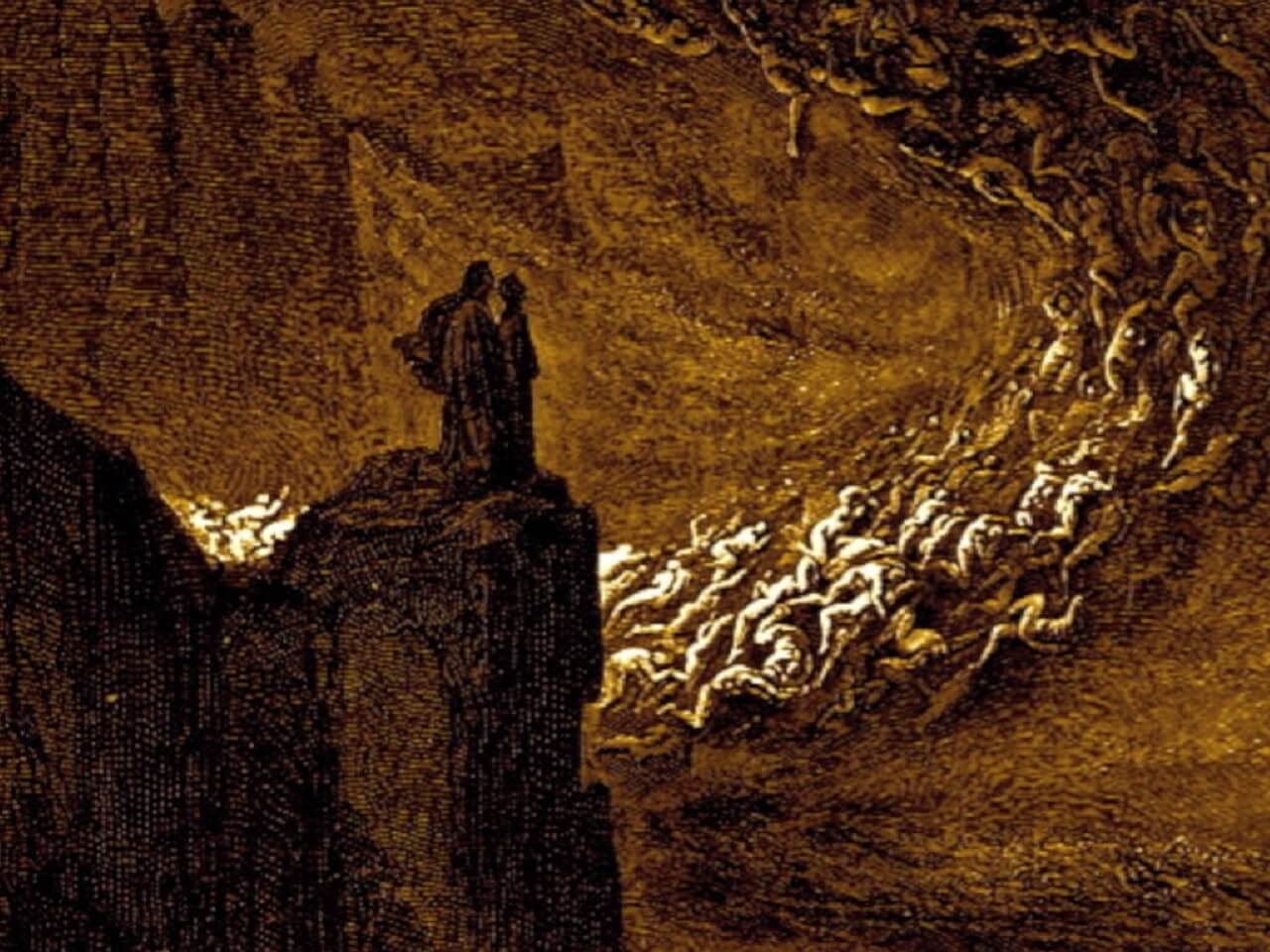“In this month, which the Holy Church consecrates to the dead, we urge you to gather in the Christian suffrage, so that those who, having obtained forgiveness from their sins, had not yet deserved the remission of their punishment, may soon rise from Purgatory to Paradise, welcomed by the Angels, by the Saints, by the Virgin, by God” (Pius XII, in Acta Apostolicæ Sedis 48, 1956, p. 52).
The Dante Symphony, Op. 109, which the Hungarian piano virtuoso and composer Franz Liszt (1811–1886) wrote between the summer of 1855 and July 8, 1856, offers us a great musical meditation on human destinies beyond death, or Novissimi — above all the second of the two parts, Hell and Purgatory, in which is articulated the symphony inspired by Dante’s Commedia, which deservedly earned the title of Divina. The musician, in fact, stops at the threshold of Paradise, persuaded by Wagner in a letter of June 7, 1855 that no human being could have made the joys of Paradise into music (cf. Correspondence of Wagner and Liszt, Vol. 2, New York, Scribner and Welford, 1889, pp. 91–100).
In Liszt’s Purgatory we listen to the orchestra playing melodies that are now serene, sometimes mournful, to the point of encountering a mystical atmosphere that leads to the entry of female (or boys’) choir with the Magnificat, the Hosannas, and the Alleluias.
Liszt follows the supreme poet Dante from the beginning of the movement, a vast Adagio, where we find the high mountain of Purgatory: with seven ledges or “cornices,” at the top of which is the Earthly Paradise and at whose bottom the shores of landing of souls lies. This mountain of atonement stands in the middle of a calm sea, and Dante, guided by the Roman poet Virgil, rises from Hell in the light of the stars, as we read in Canto I (13–18):
Sweet colour of the oriental sapphire,
That was upgathered in the cloudless aspect
Of the pure air, as far as the first circle,Unto mine eyes did recommence delight
Soon as I issued forth from the dead air,
Which had with sadness filled mine eyes and breast.
The soul is enraptured in contemplation, when, suddenly, the verses of Canto II (28–36) come to mind, in which Virgil announces to Dante the arrival of an angel of Paradise:
He cried: “Make haste, make haste to bow the knee!
Behold the Angel of God! fold thou thy hands!
Henceforward shalt thou see such officers!See how he scorneth human arguments,
So that nor oar he wants, nor other sail
Than his own wings, between so distant shores.See how he holds them pointed up to heaven,
Fanning the air with the eternal pinions,
That do not moult themselves like mortal hair!”
After the murmuring and calm introduction, in fact, the recitative of the cello opens a more intense moment, an almost organ dialogue between winds and strings, which describes the trials necessary for the souls to be able to ascend to Paradise. It seems to hear the purgative souls imploring the Father of mercy with the verses of Canto XI (1–9):
“Our Father, thou who dwellest in the heavens,
Not circumscribed, but from the greater love
Thou bearest to the first effects on high,Praised be thy name and thine omnipotence
By every creature, as befitting is
To render thanks to thy sweet effluence.Come unto us the peace of thy dominion,
For unto it we cannot of ourselves,
If it come not, with all our intellect.”
A “Lamentoso” (plaintive) episode follows, a fugue for five voices, ever more majestic and solemn, which makes us think of the affliction of those souls (XI, 28–30):
Unequally in anguish round and round
And weary all, upon that foremost cornice,
Purging away the smoke-stains of the world.
Then, little by little, the gloomy clouds thin out and music moves to softer sounds. Sopranos and altos intonate on Gregorian melodies the first two verses of the Magnificat and culminate in Hosanna and Alleluia. Here Liszt doesn’t follow Dante, who lets the penitents and blessed sing only Hosanna, but he makes us listen to a very sweet and in crescendo song, which almost manifests the souls slowly ascending the mystical mountain to God.
Those today saddened by the silence about the future life — that is, the eschatological reality — by the failure to pronounce words such as those mentioned above of the Angelic Pastor (Pius XII) might be consoled with Liszt’s music.


